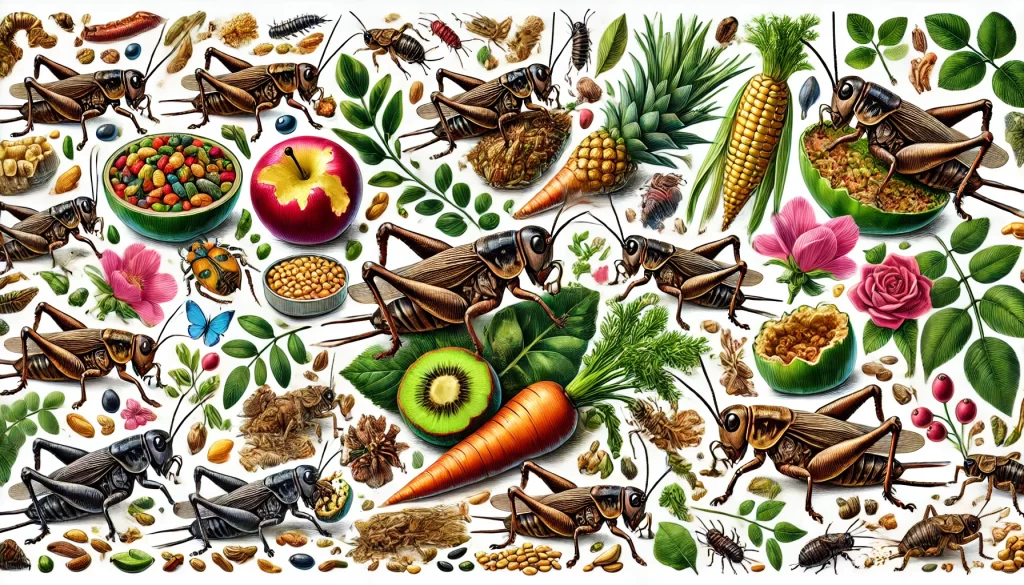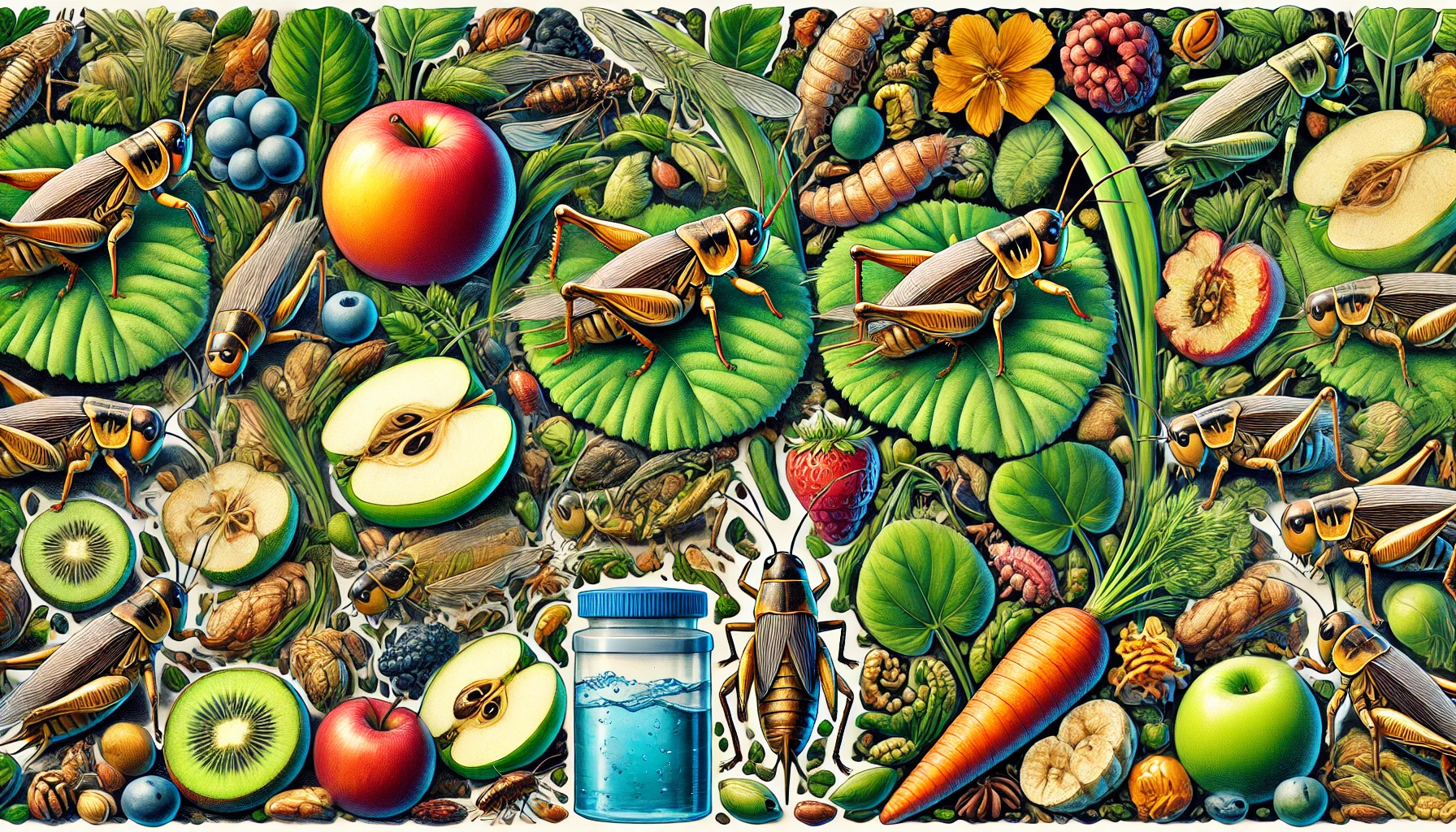Crickets are intriguing insects with diverse diets that play significant roles in their survival and ecological balance. Whether you are a pet owner, a cricket breeder, or simply curious about these chirping creatures, knowing What Do Crickets Eat? This article delves deep into the dietary preferences of crickets, offering a thorough understanding of their eating habits.
Introduction: The Significance of the Cricket Diet
Crickets are omnivores, meaning they consume both plant and animal matter. Their diet varies based on their environment, species, and available food sources. Understanding what crickets eat helps in providing proper care for pet crickets, ensuring a balanced diet for feeder crickets, and recognizing their impact on the ecosystem.

Natural Diet of Crickets
Plant-Based Foods
- Leaves: Crickets commonly munch on various leaves, preferring fresh, tender ones but also consuming decaying plant material when necessary.
- Fruits and Vegetables: Crickets enjoy fruits and vegetables, especially softer ones like apples, bananas, carrots, and leafy greens.
- Flowers: Some cricket species consume flowers, including petals and nectar, which provide essential nutrients.
- Seeds and Grains: Crickets can also eat seeds and grains, which are good sources of protein and other nutrients.
Animal-Based Foods
- Insects and Larvae: Crickets are known to eat smaller insects, larvae, and occasionally other crickets. This behavior is more common when food is scarce.
- Decaying Animal Matter: In the wild, crickets will consume decaying animal matter, providing them with essential proteins and fats.
Diet of Captive Crickets
Commercial Cricket Food
Pet stores and suppliers often sell commercial cricket food specifically formulated to meet the nutritional needs of crickets. This food typically contains a balanced mix of proteins, fats, carbohydrates, vitamins, and minerals. Read our blog for the most up-to-date articles and expert opinions.*
Fresh Produce
Offering fresh fruits and vegetables is crucial for the health of captive crickets. Items like apples, oranges, carrots, and leafy greens should be provided regularly. It is essential to wash all produce thoroughly to remove pesticides and other harmful substances.
Protein Sources
In addition to plant-based foods, captive crickets require protein. This can be achieved through various sources:
- Dry Dog or Cat Food: Ground-up dry pet food can be an excellent protein source for crickets.
- Fish Flakes: High-protein fish flakes are another good option for feeding crickets.
- Chicken Feed: Ground chicken feed can also be used to supplement the protein needs of crickets.
The Role of Hydration
Crickets need a consistent water source to stay hydrated. In captivity, this can be provided using water gels or moist sponges. Avoid using open water containers, as crickets can drown easily.
Impact of Diet on Cricket Health and Longevity
The diet of crickets directly impacts their health, growth, and longevity. A well-balanced diet ensures:
- Healthy Growth: Proper nutrition supports healthy growth and development.
- Reproduction: Adequate nutrition is essential for breeding and the production of healthy offspring.
- Lifespan: A balanced diet can extend the lifespan of crickets, ensuring they remain active and healthy.
Read Also: The Essentials of Horse Care: A Comprehensive Guide
Common Mistakes in Feeding Crickets
Overfeeding
Overfeeding can lead to obesity and other health issues in crickets. It is essential to provide the right amount of food and remove any uneaten food promptly to prevent spoilage and mold growth.
Read Also:
Lack of Variety
Feeding crickets a monotonous diet can result in nutritional deficiencies. Ensure a variety of foods to meet the diverse nutritional needs of crickets.
Inadequate Hydration
Failure to provide adequate hydration can lead to dehydration and death. Always ensure that crickets have access to a safe and consistent water source.
Conclusion: Providing the Best Diet for Crickets
Understanding what do crickets eat is crucial for their care and maintenance. Whether you are keeping crickets as pets, breeding them, or using them as feeder insects, a balanced diet is essential. By providing a variety of plant-based foods, protein sources, and proper hydration, you can ensure that your crickets remain healthy and thrive in their environment.
In this article, we have explored the dietary habits of crickets, emphasizing the importance of a balanced diet. By following these guidelines, you can ensure that your crickets are well-nourished and healthy. Remember, what crickets eat significantly impacts their overall health and longevity, making it essential to pay attention to their dietary needs.




